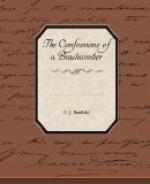In his journal, on 8th June 1770, Cook writes—“At noon we were by observation in the lat. of 17 degrees 59 minutes and abreast of the N. point of Rockingham Bay which bore from us N. 2 miles. This boundary of the Bay is formed by a tolerable high island known in the chart by the name of Dunk Isle; it lay so near the shore as not to be distinguished from it unless you are well in with the land... At this time we were in the long. of 213 degrees 57 minutes, Cape Sandwich bore S. by E. 1/2 E. distant 19 miles, and the northernmost land in sight N. 1/2 W. Our depth of water in the course of this one day’s sail was not more than 16 nor less than 17 fathoms.”
In those history-making days the First Lord of the Admiralty was George Montagu Dunk, First Earl of Sandwich, Second Baron and First Earl of Halifax, and Captain Cook took several opportunities of preserving his patron’s name. Halifax Bay (immediately to the north of Cleveland Bay) perpetuates the title; “Mount” Hinchinbrook (from his course Cook could not see the channel and did not realise that he was bestowing a name upon an island) commemorates the family seat of the Montagus; Cape Sandwich (the north-east point of Hinchinbrook) the older title, and Dunk Isle the family name of the distinguished friend of the great discoverer of lands.
From this remote and unheard of spot may, accordingly, be traced association with a contemporary of Robert Walpole, of Pitt and Fox, of Edmund Burke, of John Wilkes (of the north Briton), of the author of the letters of Junius and of John Gilpin, and many others of credit and renown. The First Earl Sandwich of Hinchinbrook was the “my lord” of the gossiping Pepys. Through him Dunk Island possesses another strand in the bond with the immortals, and is ensured connection with remote posterity. He gambled so passionately that he invented as a means of hasty refreshment the immemorial “sandwich,” that the fascination of basset, ombre or quadrille should not be dispelled by the intrusion of a meal. He, too, was the owner of Montagu House, behind which “every morning saw steel glitter and blood flow,” for the age was that of the duellist as well as the gambler.
Rockingham Bay was so named in honour of the marquis of that title, the wise Whig premier who held that while the British Parliament had an undoubted right to tax the American colonies, the notorious Stamp Act was unjust and impolitic, “sterile of revenue, and fertile of discontent!”
Cook and his day and generation passed, and then for many years history is silent respecting Dunk Island. The original inhabitants remained in undisturbed possession; nor do they seem to have had more than one passing visitor until Lieutenant Jeffereys, of the armed transport Kangaroo, on his passage from Sydney to Ceylon in 1815, communicated with the natives on then unnamed Goold Island. Captain Philip P. King, afterwards Rear-Admiral,




